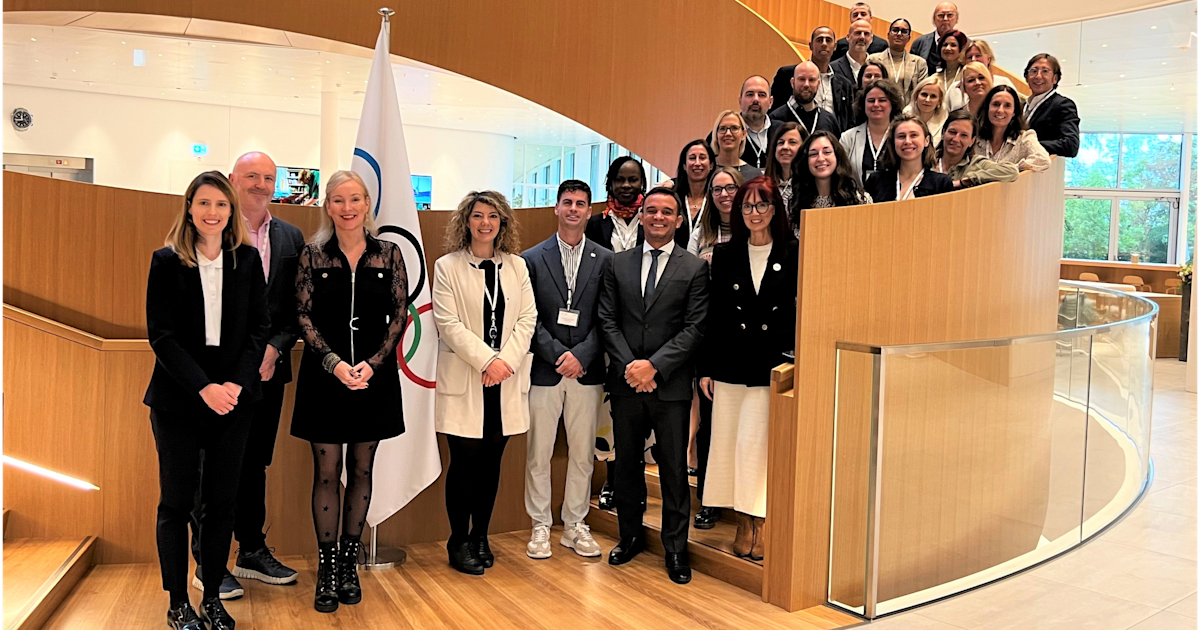The informative media session was held on 2 November in cooperation with the Council of Europe and the European Broadcasting Union in the framework of the joint European Union-Council of Europe project “All In Plus”. The event’s objectives were to create a space for meaningful discussions and exchanges of expertise, thereby fostering a deeper understanding of the challenges associated with gender disparities in sport. Unconscious bias, storytelling, safe reporting and portrayal were among the topics addressed.
During this session, 27 sports media professionals from all over Europe also had the opportunity to get acquainted with the IOC Portrayal Guidelines. The guidelines call for the implementation of gender-equal, fair and inclusive portrayal practices in all forms of communication across the Olympic Games and throughout the Olympic Movement to ensure the focus is placed on sport.
Opened by European Commissioner for Equality Helena Dalli, the Spanish Presidency’s Conference on Gender Equality in Sport navigated the broad landscape of gender equality in sport, delving into critical facets such as gender-based violence, the current status of women in sport and their visibility. Key areas of support to the IOC’s gender equality priorities were presented, including the Olympism365 strategy and the IOC’s approach to safe sport.
The Olympism365 strategy strengthens the role of sport as an important enabler for the UN’s Sustainable Development Goals and connects people with the Olympic values everywhere, every day. A series of projects, partnerships and initiatives implemented as part of the strategy also use sport as a tool to advance gender equality and prevent gender-based violence. Speaking on a panel alongside implementing partners from Latin America, Barbara Schweizer, Programme Manager at the IOC, particularly emphasised that collaboration is at the heart of the Olympism365 strategy: “We all have a shared objective to achieve more equity, equality and inclusion in society in and through sport, and envision co-creating rather than duplicating, because Olympism365 is not about competition, but about collaboration.”
The IOC is committed to providing a safe environment for all athletes. Safeguarding is a central element of the IOC Strategic Framework on Human Rights and the IOC Gender Equality and Inclusion Objectives for 2021-2024. As a key step forward in strengthening safeguarding in sport at local level and providing the best possible support for athletes, the IOC Executive Board (EB) recently approved plans to establish two pilot regional safeguarding hubs in Southern Africa and the Pacific Islands. The plans build on existing initiatives in those regions. As announced at the Conference in Madrid, the IOC EB also supported the initial work for a European safeguarding hub.
Speaking on behalf of the IOC at the event, Tine Vertommen, an expert in the IOC Safe Sport Unit, highlighted the dual role that sport plays in relation to gender-based violence: **“**On the one hand, sport can serve as an environment where gender-based violence may occur. On the other hand, sport possesses the potential to function as a powerful tool for combatting gender stereotypes and norms. It can contribute to wider approaches in addressing gender-based violence, act as a platform to actively challenge societal attitudes and norms, provide safe spaces to support women and girls, champion the cause of gender-based prevention, and provide a pathway for involving men and boys in prevention efforts.”

